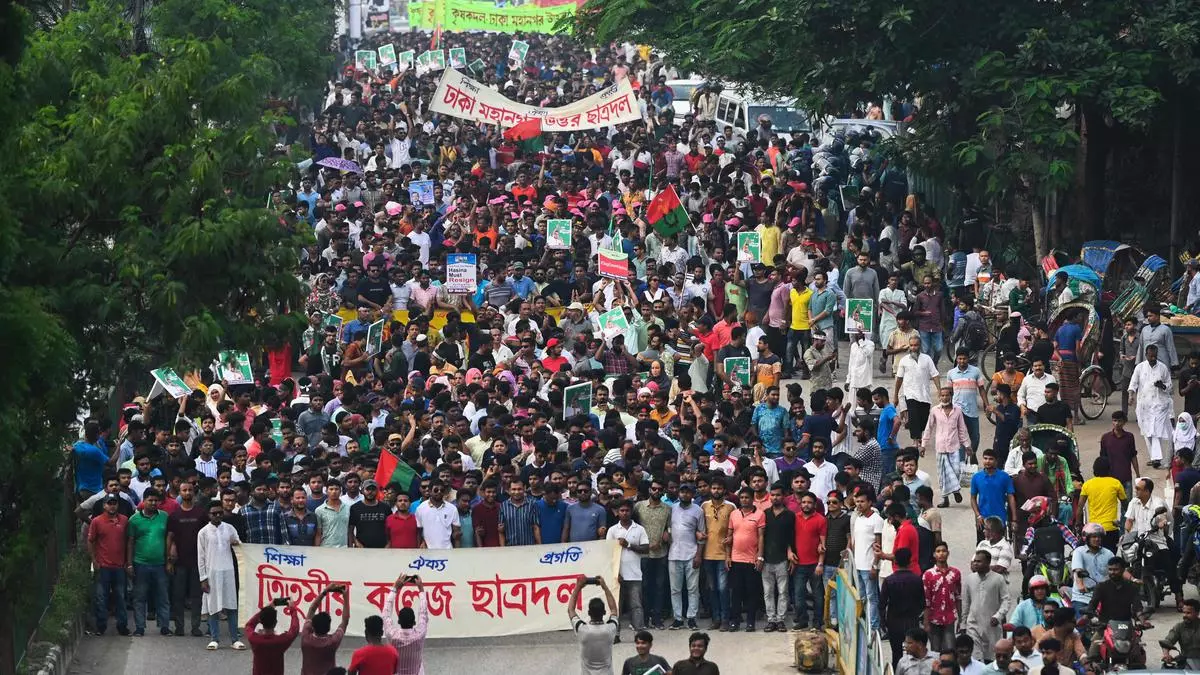
In Bangladesh, where national elections are scheduled for January 7, political issues are taking a backseat, and the scarcity and high prices of essential food items such as potatoes, onions, eggs, edible oil, and sugar are taking centre stage. In an emergency meeting held at the Bangladesh Prime Minister’s Office (PMO) on November 11, the government took a series of decisions to ensure these commodities are available at affordable rates in the market.
The government has instructed the country’s central bank – Bangladesh Bank – and state-owned Sonali Bank to ensure an adequate supply of US dollars to facilitate imports of these items. Besides, deputy commissioners have been asked to depute government officials at all cold storages and ensure official instructions on the supply and prices of potatoes and other food items are followed. These orders were implemented with immediate effect, beginning on November 12.
As the ruling Awami League is going to the polls seeking continuity in power, the opposition, in recent months, brought immense pressure on the government through well-attended rallies and agitations that often resulted in violence. With Western powers putting Bangladesh on notice for human rights violations, the January elections would expectedly have these issues at the centre of the political debate, both inside and outside the country. The current Bangladesh government has been in power since 2009.
But the political discourse is shifting to food scarcity, which looms large in the country with nearly 170 million people. Given this, political issues will likely be relegated, and food scarcity will come to the fore in the election rallies. The main opposition party Bangladesh Nationalist Party (BNP) is demanding an interim government to conduct the general elections saying that Awami League government led by Sheikh Hasina will not ensure free and fair polls. But the ruling party is saying that this is not permitted by the Constitution and already the country’s Supreme Court has made the position clear.
The food scarcity in Bangladesh became evident in August when eggs began to disappear from the market. They were selling for Bangladesh Taka (BDT) 15 apiece, and the government tried to contain the price to BDT 12. The country, which produced about 400 million eggs, saw the number drop significantly after many poultry farms were closed during the pandemic.
Around the same time in August, potato prices began heating up. Bangladesh is a major potato-producing country, accounting for roughly 10 million tonnes out of a global annual production of 65 million. The country saw the retail potato prices skyrocketing to BDT 60-65 per kg, more than double the price in the Indian market.
Realising that these developments may dent the electoral prospects of the ruling Awami League, the Bangladesh government opened the imports of eggs and potatoes before the PMO meeting allowed the same for other food items. According to local media reports, despite placing import orders, Bangladesh has been waiting to receive the promised amounts of eggs for about two months now.
The commerce secretary of the Bangladesh government, Tapan Kanti Ghosh, after the November 11 PMO meeting, stated that due to the import of 62,000 pieces of eggs, the market has started to ease, local news reports said.
“Permission has been given to import 25 crore eggs, but imports were delayed due to legal complications. The process has now been simplified, and letters of credit have been opened for egg imports, so more eggs will be arriving soon,” media reports quoted him.
The status of potato imports needs to be more encouraging. The government has allowed 200,000 tonnes of potatoes to ensure this staple vegetable sells at average prices of around BDT 35 per kg. So far, the country has received about 1095 tonnes of potatoes from India’s West Bengal, where farmers faced a glut and low prices, while a new potato sowing season that begins in November was at their doors.
Ordinary people in Bangladesh are worried that potato imports may also follow the egg import path.
Bangladesh is also facing a scarcity of edible oil and has allowed its imports to improve the supply situation. India imports 60% of the edible oil it consumes. The entire Indian sub-continent imports edible oil heavily due to its food habit of oil-heavy and fried foods.
Experts believe that Bangladesh needs more essential food items due to inadequate data on the country’s stock. For example, the agriculture and commerce ministries announced potato production at 11.2 million tonnes against the annual consumption of 9 million tonnes. The Bangladesh Statistics Bureau said the production was 10.4 million tonnes, while the Bangladesh Cold Storage Owners Association said the county produced only 8.5 million tonnes of potatoes.
With food scarcity claiming more of the collective mind space in Bangladesh in the coming days, chances are that by the time the elections are held in early January next year, food scarcity will become a compelling concern, impacting voting trends. (IPA Service)
The post Food Scarcity Adds To The Woes Of Awami League Govt As The Country Goes For Elections first appeared on Latest India news, analysis and reports on IPA Newspack.


